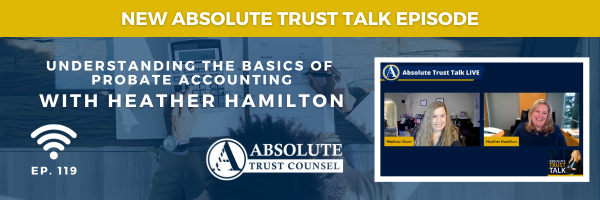
In the realm of estate planning, a will without a trust stands as an important document, orchestrating the distribution of assets and the fulfillment of wishes after one’s passing. In California, the statutory will serve as a convenient template for many individuals seeking to outline their testamentary intentions. While there are times when a statutory will may be sufficient –…

Many people believe that everything automatically passes to their spouse upon their death, regardless of how property is titled or any estate planning documents prepared. In some cases, this may be true. However, there are several situations where this may not be the case, and the surviving spouse may either not receive the property or may experience difficulty gaining access…


Over the past few months, we have discussed three very common scenarios where real estate is involved in a trust administration and where beneficiaries may not agree or have different ideas of what to do with the real estate. Part I of this series tackled the common issue of one sibling wanting to keep the home as an investment property…

For this four-part series, we are discussing very common scenarios that we see in our trust administrations where real estate is involved. Real estate, particularly the family home, often has emotional and sentimental components that can throw a wrench in trust administrations. Beneficiaries often have conflicting ideas of what to do with the family home. We will continue using the…

If you’re someone who is serving in the role of trustee, executor, conservator, or guardian, acting as a personal representative for someone’s estate in California, did you know that the state has specific guidelines for probate accounting? According to section 16062, the California probate code requires representatives to provide an accounting at least once a year. The purpose is usually…
